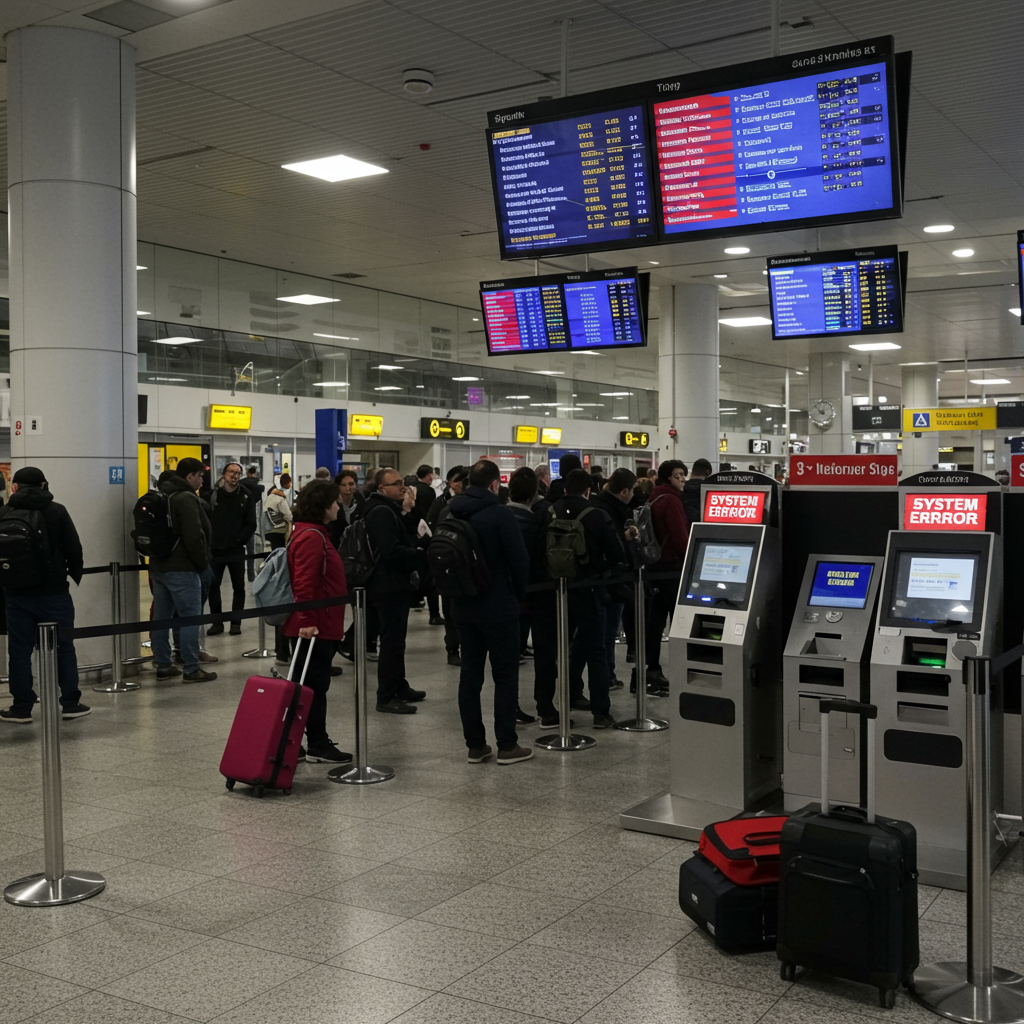Tesla’s board is pushing for an unprecedented compensation package for CEO Elon Musk. This massive deal, reportedly valued at an astounding $1 trillion, is up for a crucial shareholder vote. To secure approval, the board is employing a familiar tactic: threatening Musk’s departure if the deal is rejected. This high-stakes drama unfolds amidst legal battles and sharp criticism from corporate governance experts, leaving investors to weigh the risks of losing their charismatic leader against concerns of excessive executive influence.
The Unprecedented Stakes of Musk’s Pay Package
The upcoming November 6th annual shareholder meeting presents a pivotal moment for Tesla investors. At its core is the board’s proposal to award Elon Musk a compensation package valued at approximately $1 trillion. This figure, truly staggering, dwarfs any previous CEO compensation considered for a public company. For context, last year, Tesla shareholders approved a $55 billion pay package for Musk. Even that sum was historic at the time, but it has since been voided by a court ruling.
This current proposal highlights a persistent tension. Is Musk’s value to Tesla truly immeasurable, or does this package represent an unprecedented overreach? Shareholders must navigate this complex question, understanding the profound financial and strategic implications of their decision.
A Familiar Argument: The “Elon or Else” Ultimatum
Tesla’s board of directors is actively lobbying shareholders, leveraging a deeply familiar argument. Robyn Denholm, Tesla’s board chair, outlined the core message in a letter to shareholders: approving Musk’s package is essential to retain him. She warned, “Without Elon, Tesla could lose significant value, as our company may no longer be valued for what we aim to become: a transformative force reimagining the fundamental building blocks of mobility, energy and labor, with products such as FSD and Optimus, and working to better humanity in the process.”
This statement echoes the precise language used by the board when it successfully pushed for the $55 billion package just a year prior. Critics suggest this repeated tactic, framing Musk’s presence as non-negotiable for future success, effectively pressures shareholders. The board’s strategy positions the vote as a choice between a future with Musk’s vision and a diminished Tesla without it.
Corporate Governance Under Fire
This substantial Musk compensation deal has not gone unopposed. Leading proxy advisory firms, Institutional Shareholders Service (ISS) and Glass Lewis, have both issued stern guidance. They recommend shareholders reject the package. Their rationale is clear: the proposed compensation is “too large.” Furthermore, they cite concerns that Tesla’s board has been unduly influenced by Musk himself, pointing to court findings.
This critique implies a broader issue of “board capture.” This occurs when a company’s board, meant to represent shareholder interests, becomes overly subservient to the CEO. Such a scenario can lead to decisions that favor executive interests over broader shareholder value. Elon Musk, for his part, publicly dismissed these critical proxy firms as “corporate terrorists” during a recent Tesla earnings call, demonstrating the intensity of the debate. This contentious exchange underscores the deep divisions surrounding Tesla’s corporate governance practices.
Legal Battles and Strategic Corporate Moves
The stakes surrounding Elon Musk’s pay package are heightened by ongoing legal challenges. A Delaware court, just last year, voided Musk’s previous compensation package, then valued at over $50 billion. The court ruled that the deal was “flawed and unfair to shareholders.” It also specifically cited Musk’s “undue influence” over the package’s composition. This decision stood even though shareholders had previously approved the hefty compensation twice.
Tesla has since appealed this significant ruling to the Delaware Supreme Court. In a strategic response to the Delaware court’s decision, Musk orchestrated a vote to reincorporate the company in Texas. This move is significant. Texas lacks the decades of corporate legal precedence and robust shareholder protection laws common in Delaware. This shift could potentially impact future legal challenges regarding corporate governance and executive compensation at Tesla. The relocation complicates matters for shareholders seeking legal recourse.
The Board’s Confidence and Calculated Timing
Despite the legal setbacks and widespread criticism, Tesla’s board appears confident in the outcome of the upcoming November 6th vote. Several factors contribute to this optimism. Elon Musk has reportedly increased his personal stock holdings in Tesla, signaling his commitment. Additionally, board chair Robyn Denholm is engaging in rare interviews, actively campaigning to rally shareholder support.
The timing of this vote also plays a crucial role. Tesla recently reported strong third-quarter sales. These figures were partially bolstered by consumers rushing to claim expiring $7,500 tax credits for electric vehicles. This surge in sales provides a positive backdrop for the board’s proposal. However, this success might be fleeting. Musk himself has admitted that Tesla’s earnings are likely to worsen in the coming quarters. This anticipated decline is largely due to the elimination of those very same tax credits, a policy for which Musk shares some responsibility. The board, therefore, seems to be seizing a strategic window, framing the approval of this Tesla Elon Musk pay package as essential for the company to achieve its ambitious vision as a leader in AI and robotics.
Unaddressed Challenges Beyond the Pay Package
While the board’s letter champions Musk’s transformative vision, it conspicuously sidesteps numerous significant challenges. These issues impact both Tesla’s future and Musk’s broader influence. The letter ignores Musk’s highly publicized political involvements, his support for controversial figures, his promotion of specific cryptocurrencies like DOGE, and his decisions regarding content moderation on X (formerly Twitter). Ignoring these aspects, which attract considerable public and media attention, does a disservice to shareholders. They deserve a comprehensive understanding of all factors affecting the company’s brand and leadership stability.
Beyond Musk’s personal controversies, Tesla faces fundamental business hurdles. Its product lineup is showing signs of age. Competition in the EV market is rapidly intensifying. The company’s unique approach to full self-driving (FSD) technology remains unproven at scale. Furthermore, impending changes include the disappearance of crucial regulatory credits, which previously boosted earnings. Ongoing tariffs continue to impact the company’s bottom line. Rather than presenting a clear strategic plan to tackle these mounting challenges, the board seems focused solely on securing this extraordinary Musk compensation deal.
Shareholders’ Critical Dilemma
Shareholders face a profound decision. They must weigh the potential consequences of rejecting the proposed pay package, which the board frames as risking Musk’s departure. This risk must be balanced against concerns about corporate governance, executive oversight, and the financial implications of such a massive payout. The choice isn’t just about money; it’s about Tesla’s future trajectory, its leadership, and the principles of corporate accountability. Approving the deal would cement an unprecedented pay structure. Rejecting it could trigger significant market uncertainty, yet it might also signal a renewed commitment to sound corporate governance.
Frequently Asked Questions
What is the core argument Tesla’s board is using to secure Elon Musk’s pay package?
Tesla’s board argues that approving Elon Musk’s compensation package is crucial for the company’s future value and continued innovation. They explicitly warn that without Musk, Tesla risks losing significant value and its transformative potential across mobility, energy, and AI. This “Elon or else” ultimatum is framed as necessary to retain his unique vision and leadership, which they believe is indispensable for projects like FSD and Optimus.
Which legal and advisory bodies have opposed Elon Musk’s compensation, and why?
Both Institutional Shareholders Service (ISS) and Glass Lewis, leading proxy advisory firms, have recommended shareholders reject the proposed pay package. Their opposition stems from the package being deemed “too large” and concerns about “undue influence” from Musk over a board they believe is “captured” by him. Furthermore, a Delaware court previously voided Musk’s prior $50+ billion package, citing it as flawed and unfair to shareholders due to his significant influence over its terms.
What are the long-term business challenges Tesla faces that the board’s letter seems to overlook?
Tesla faces several significant business challenges not addressed in the board’s letter advocating for Musk’s pay. These include an aging vehicle lineup amidst growing competition in the EV market, the unproven scalability and reliability of its Full Self-Driving technology, and the impending loss of valuable regulatory credits. Additionally, ongoing tariffs continue to impact profitability. The board’s focus on retaining Musk overshadows a comprehensive plan to tackle these pressing operational and market-based hurdles.
Conclusion
The forthcoming vote on Elon Musk’s unprecedented pay package is more than a routine corporate decision; it’s a referendum on Tesla’s leadership, governance, and future direction. Shareholders are tasked with a monumental choice: accede to the board’s “Elon or else” strategy, or push for greater accountability. The outcome will not only define Elon Musk’s compensation but also set a powerful precedent for executive pay and corporate oversight across the industry. This pivotal moment will undoubtedly shape Tesla’s trajectory for years to come.




